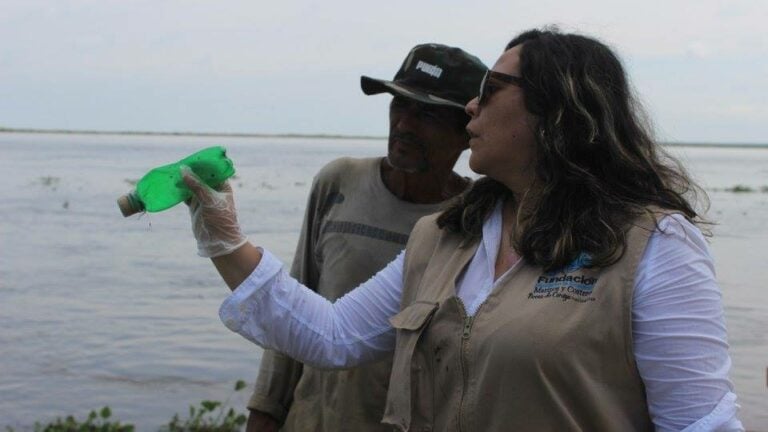The Tough Path to Environmental Justice in Colombia
By: Liliana Patricia Guerrero Ramirez

The values that inspire us and guide our actions are: justice, peace, equity and respect for Mother Earth (water, soil, air, wildlife); which, despite being immersed in our Political Constitution, developed and protected since 1991 by the jurisprudence of the Honorable Constitutional Court of Colombia, are constantly and flagrantly violated.
Colombia is a multi-diverse country, with immense natural heritage, while being one of the most inequitable countries in the world, being this inequality is one of the sources of violence, and the proliferation of major socio-environmental conflicts. The country has 5 macro-basins, 42 hydrographic zones and 351 hydrographic sub-areas, in addition to hydrographic sub-areas of which they are not codified in the zoning carried out by the competent national office.
Undoubtedly, this makes Colombia a hydrographic high-power country demanding to take solid and timely measures to stop the pollution and degradation generated by hydroelectric infrastructure projects, hydrocarbons, both legal and illegal mining, and discharges of domestic and industrial wastewater without prior treatment, which threaten aquatic life, initiating restoration processes in parallel.
Stopping and reducing socio-environmental conflicts and reducing pollution requires structural changes in Colombian environmental policy. We must prioritize life over extractivism, fracking, hydroelectric projects that cause irreparable damage to rivers and displacement of communities, spraying with glyphosate, discharge of uncontrolled toxic substances, among other anthropic activities that threaten the conservation of water in Colombia. Thus, in the most remote and vulnerable territories of Colombia, environmental degradation accompanies poverty, inequality and death.
Guardaguas de Ecosistemas Marinos y Costeros Bocas de Ceniza, licensee of the Bocas de Ceniza Waterkeeper program, is an organization that is not at the center of these conflicts, does not suffer from the violence that can hit the most vulnerable communities in the country. However, this does not make us indifferent. On the contrary, we want to impact more than our close environment. We want to contribute to the achievement of environmental justice and consequently to the reduction of inequality throughout Colombia.
Bocas de Ceniza Waterkeeper program is located in the city of Barranquilla, Colombia, – fourth city in importance of the country – with an industrial vocation, crossed by the Magdalena River, flowing into the Caribbean Sea in the place known as Bocas de Ceniza.
The Magdalena River, although it is not the largest in Colombia, concentrates 50% of the country’s population within its basin. This can generate great pressures, increasing the number of socio-environmental conflicts that distance us from equity and peace.
Our organization works from the city, to reduce urban pressures on the river. While basic sanitation is both a right and a duty of the State, more than 50% of all municipalities in Colombia do not have sanitation of their wastewater. Barranquilla, for example, with more than a million inhabitants, an industrial city and a pioneer in many aspects, only treats 30% of its wastewater. In the Gran Malecón del Rio, a percentage is discharged directly to the river without any type of treatment and the wastewater from the southeastern area of the city, arrives at a station where only solids and fats are removed, unloading the wastewater directly to the Rio Magdalena, through a subfluvial outfall.
This panorama is not alien to the rest of the Magdalena-Cauca macro-basin. More than 400 municipalities in the area discharge their wastewater directly into the Magdalena River without treatment.
We are currently dedicated to fighting for clean water and environmental justice, through legal work, and promoting structural changes in the Colombian legal system. This legal work is materialized today in two draft of bills, which promote the defense of human rights in environmental matters and the rights of nature. The first of them, “Through which provisions are issued in order to recognize rivers and other water sources as subjects of rights, and create the National System for the Protection and Integral Conservation of Rivers with special hydrogeological, landscape, historical, biological and cultural conditions” is being promoted by several organizations that we have allied to achieve that in the period 2022-2026 it can become law of the republic with broad support from grassroots environmental organizations throughout the country. At the same time, the second will be promoted, ”By means of which provisions are issued to guarantee the physical, chemical and biological quality of water, the restoration of quality and the hydrological cycle of deteriorated water bodies.”
Environmental justice and defense of water are our flag, never faint, always forward.